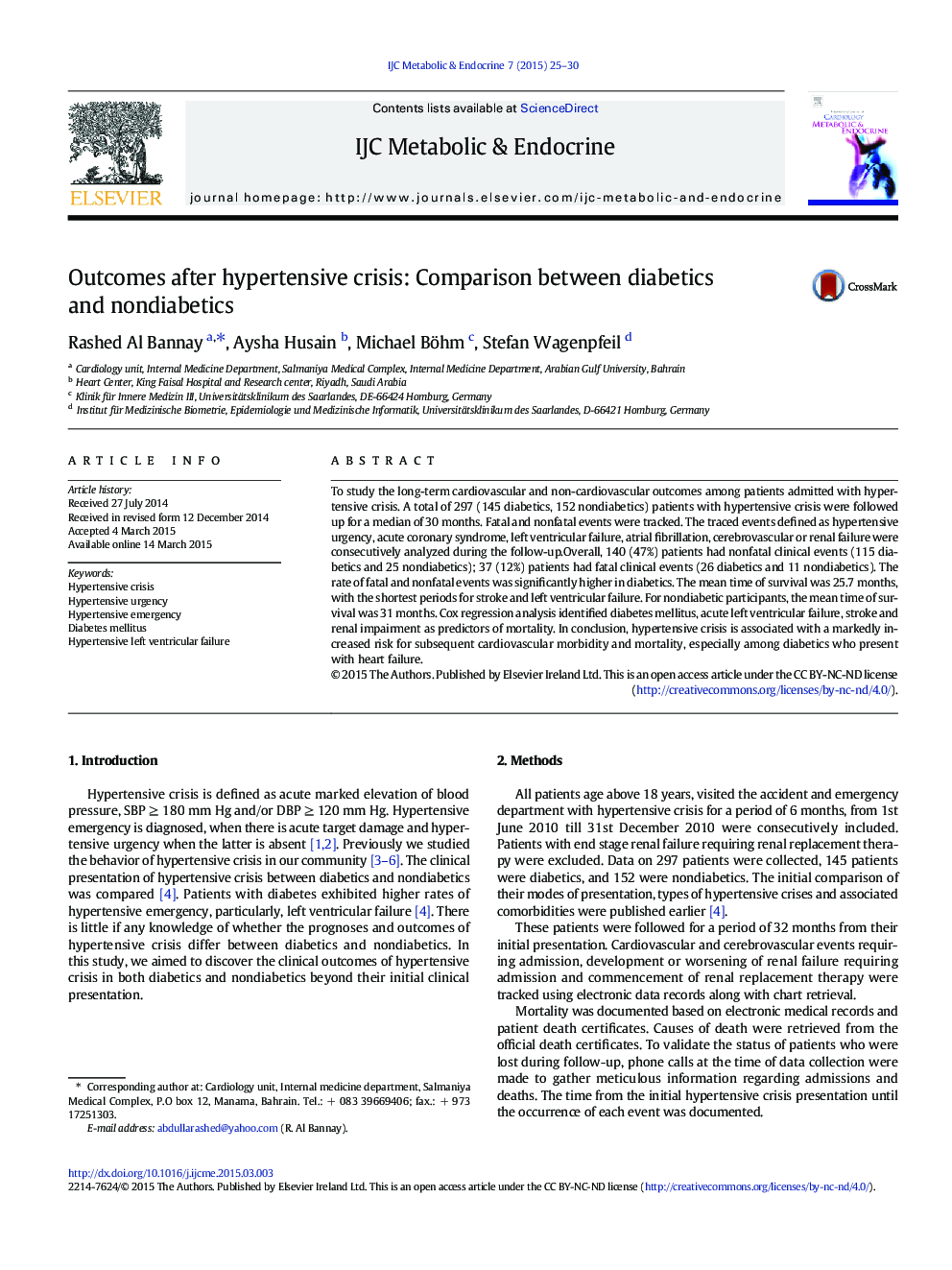| Article ID | Journal | Published Year | Pages | File Type |
|---|---|---|---|---|
| 2927219 | IJC Metabolic & Endocrine | 2015 | 6 Pages |
•We followed diabetic and nondiabetic patients presented with hypertensive crisis for 2.5 years.•We compared the cardiovascular and non-cardiovascular clinical outcomes of both groups.•Hypertensive crisis carries significant subsequent morbidity and mortality risk especially in diabetics with heart failure.•Hypertensive urgency in diabetics is equivalent to hypertensive coronary syndrome in nondiabetics.•Hypertensive urgency conceals an emergency risk if associated with left ventricular hypertrophy or renal impairment.
To study the long-term cardiovascular and non-cardiovascular outcomes among patients admitted with hypertensive crisis. A total of 297 (145 diabetics, 152 nondiabetics) patients with hypertensive crisis were followed up for a median of 30 months. Fatal and nonfatal events were tracked. The traced events defined as hypertensive urgency, acute coronary syndrome, left ventricular failure, atrial fibrillation, cerebrovascular or renal failure were consecutively analyzed during the follow-up.Overall, 140 (47%) patients had nonfatal clinical events (115 diabetics and 25 nondiabetics); 37 (12%) patients had fatal clinical events (26 diabetics and 11 nondiabetics). The rate of fatal and nonfatal events was significantly higher in diabetics. The mean time of survival was 25.7 months, with the shortest periods for stroke and left ventricular failure. For nondiabetic participants, the mean time of survival was 31 months. Cox regression analysis identified diabetes mellitus, acute left ventricular failure, stroke and renal impairment as predictors of mortality. In conclusion, hypertensive crisis is associated with a markedly increased risk for subsequent cardiovascular morbidity and mortality, especially among diabetics who present with heart failure.
